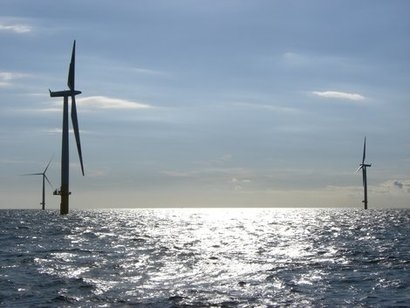
Better access to turbine data allows operators to not only reduce their operational costs, but to also generate insights and innovations that will drive competition in the sector and make long-term goals, like the UK government’s 2030 offshore wind sector deal, a reality, says provider of AI driven predictive maintenance services Onyx InSight.
To deliver on the UK government’s 30 GW target, the offshore wind energy sector will need to continue a path of cost reduction across their projects. Too often it is assumed that savings and cost reductions will naturally follow from building larger turbines. However, increased complexity of the 10MW-plus turbines will require more sophisticated operations and maintenance programmes involving advanced analysis of turbine condition data to forecast repair needs. Without a more predictive approach, operational expenditure will potentially increase, negating the benefit of larger turbines and leaving the sector reliant on subsidies.
“As offshore wind farms grow in size and install more ultra-scale wind turbines, owners cannot expect the simple formula of bigger is better to optimise their profitability, they must constantly mine the data from their turbines to improve performance” said Bruce Hall, CEO of Onyx InSight. To do this, they require more access to their data to forecast and plan maintenance, repairs and replacements, and reduce the cost of these programmes”.
Large scale offshore wind farms of the future will feature turbines with tip heights reaching past 300 metres and individual capacities over 10 MW and often three times more than current rated capacities. Under these circumstances, the penalty for having a turbine out of commission will double or triple for owners and operators in terms of revenue loss caused by downtime. With average turbine sizes also increasing for onshore wind energy, the risk to revenue is relevant across the industry. With greater power will come a greater responsibility to maximise the uptime of turbines by carefully managing their performance.
Full access to performance data is essential in helping owners cut the levelised cost of wind energy and allowing it to compete better with other energy sources. Sophisticated predictive maintenance programmes can be built using full data access and advanced digital technologies to reduce operational expenditure and reduce the cost of energy.
“We see a significant role for freer data access in helping operators continuously drive down the cost of wind energy” added Mr Hall. “In recent years, the industry has been gathering ever greater amounts of data, and greater processing power has allowed the industry to mine rich data steams faster and more accurately. Combined with more advanced analytics this has enabled us to recognise patterns and gain better insights into turbine performance. However, restricted data access stops us from gaining these insights – and realising their economic benefits. Beyond project returns, better access to data will allow owners and operators to drive innovation and increase the competitiveness of offshore wind over the next decade. To help it achieve the goals set by the UK government the industry can find no better catalyst than the exploitation of better data on turbine performance.”
Onyx InSight has published Thinking About Tomorrow, a whitepaper that sets out how operators can improve operational profitability using turbine performance data. Operators using advanced digital technology to manage their turbine fleets will be more resilient in the competitive, merchant-based wind energy market of the future.
For additional information:

